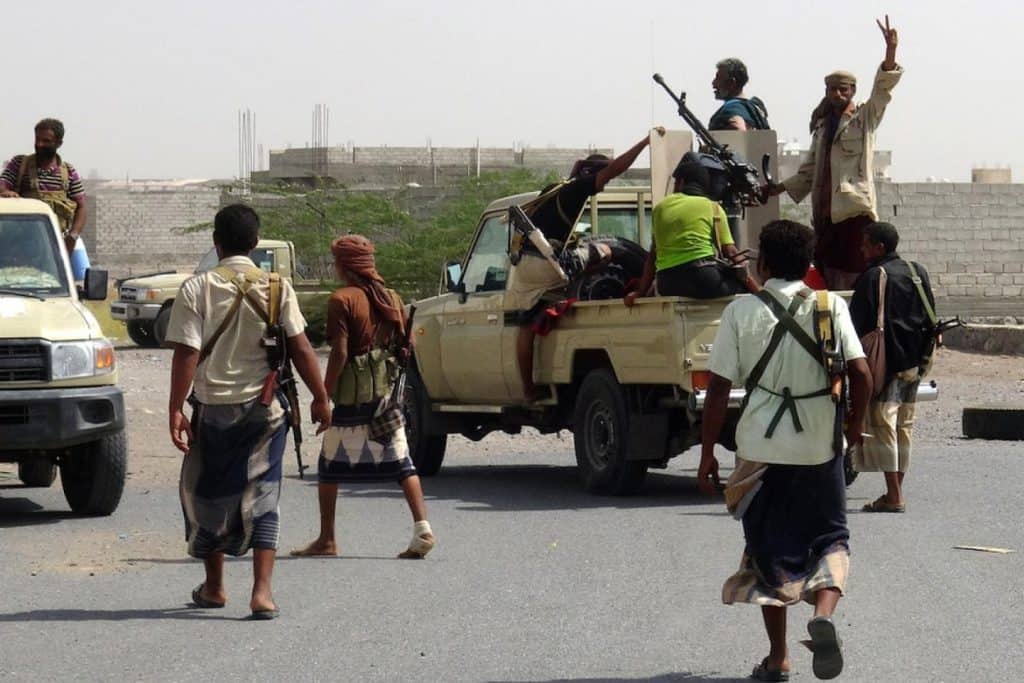Denis Korkodinov – Interview with Alaa Adel Hanash
The civil war in Yemen is still the central theme of the military-political processes on the Arabian Peninsula. The project of a Yemen unified, apparently, will never be realized. The parties to the conflict aim to separate from each other by proclaiming the independence of South and North Yemen within the borders of 1990.
Specifically for World Geostrategic Insights, we talked about this with the editor-in-chief of the Yemeni May 4 newspaper, Alaa Adel Hanash, who is responsible for reporting for the Al Amana newspaper in Southern Yemen.

1. On November 5, 2019, the Southern Transitional Council of Yemen, through the mediation of Riyadh and Abu Dhabi, entered into a peace agreement with the “government in exile” led by Abd Rabbah Mansour Hadi. In accordance with this agreement, the parties agreed not to conduct hostilities against each other, which allowed the southerners to receive certain security guarantees from the forces of the international Arab coalition. What is the position of the Ansar Allah movement in relation to the treaty between the South and the “government in exile”? If the Southern Transitional Council in the short term takes the initiative to conclude a peace agreement with the Ansar Allah movement, will this be the basis for ending the civil war in Yemen?
– The Ansar Allah movement rejects any agreements concluded with Riyadh and the “government in exile” regarding Yemen, since the Hussites do not recognize Mansur Hadi as the legitimate president of Yemen and proceed from the opinion that he is the “puppet” of Saudi Arabia. Therefore, as the chairman of the Supreme Revolutionary Committee of Yemen, Mohammed al-Khuti, noted that the agreement signed by representatives of the “government in exile” has no legal force and cannot produce any legal consequences.
It is currently unlikely that the Southern Transitional Council could initiate a ceasefire with the Ansar Allah movement, as there are many reasons for this.
First, the Southern Transitional Council has become a strategic partner of the Arab coalition led by Saudi Arabia against the pro-Iranian Hussite group. The main goal of this partnership is not only to limit the influence of the Ansar Allah movement, but also to oust Iran from the region. For this reason, peace initiatives between representatives of the North and South of Yemen are impossible.
Secondly, the Ansar Allah movement is distancing itself from any form of agreement that would question its authority both within Yemen and in the international arena. Because of this, a possible truce with the Southern Transitional Council is a figment of the imagination, since such an agreement can erase all the military successes of the Hussites.
Thirdly, the Ansar Allah movement intends to continue military operations until a complete victory and the liberation of the entire territory of Yemen from foreign forces. Therefore, the Hussites can only accept the unconditional surrender of their opponents.
2. Member of the Presidium of the Southern Transitional Council, Nasser al-Khabaji, in his recent interview, officially stated that the purpose of the agreement with the “government in exile” is to declare the independence of South Yemen. How likely is South Yemen to achieve independence? Does this show that the Ansar Allah movement can proclaim the independence of Northern Yemen?
– Before answering this series of questions, I would like to clarify that the member of the Presidium of the Southern Transitional Council Nasser al-Khabaji did not directly say that the purpose of the Riyadh agreement is to declare independence of the South. The exact meaning of his words boils down to the fact that, in his opinion, the Riyadh Agreement is a historical event and an important shift in the course of the Arab war against Iran. In addition, he said that an agreement was reached in Saudi Arabia on temporary common denominators in the confrontation with the Ansar Allah and Muslim Brotherhood movements.
In this regard, the Riyadh Agreement is a roadmap on the status of the South and its provinces at this stage, and it ends with the efforts undertaken by the Kingdom of Saudi Arabia after sensing the situation in the South.
Meanwhile, this does not indicate the absence of a plan for the South Transitional Council to declare independence of South Yemen in the foreseeable future. Southerners will never abandon this plan.
The South sent enough of its volunteers to death, thanks to which it considers itself entitled to demand the formation of an independent state within the borders existing until May 21, 1990.
The project of united Yemen failed miserably due to misunderstanding on the part of all the participants in the Yemen conflict, which, unfortunately, forgot that they should not strive for war with each other, but for unification, if they really need to maintain the integrity of the country. Therefore, the circumstances are now such that the likelihood of independence of the South is extremely high. This is a logical consequence of the civil war in Yemen. In addition, by analogy with the South, the North, under the direction of the Ansar Allah movement, will also proclaim its independence in the near future.
This will be correct, since we cannot live within the framework of one state for the reason that we are different. They tried to artificially unite us, which led to a war between us. Therefore, if we want peace in Yemen, we must recognize the independence of the North and South and forever abandon the project of a Yemen unified.
3. The leader of the Ansar Allah movement, Abdul-Malik al-Khuti, in a television speech on the anniversary of the Prophet Muhammaly stated that the armed forces controlled by the movement would not hesitate to “deliver a crushing blow” to Israel if Tel Aviv decides launch an attack in Yemen. If this scenario is realized, then this will cause a great international resonance, since Ansar Allah never attacked Israel directly. Does Ansar Allah really plan to strike at Israel? How do Yemeni forces plan to overcome Israel’s air defense system, which is considered one of the most invulnerable in the world? What goals in Israel are of interest to the Ansar Allah movement?
– The statements of Abdul-Malik al-Khuti are part of the information war. At the same time, the Yemeni forces do not plan to seriously overcome the Israeli air defense system, since the main goal of the Ansar Allah movement is to ensure control over the South, while Israel is very far away and is not within the scope of the Hussites.
The Hussite group perceives the struggle against Israel and the United States only as a slogan that has no chance of becoming a reality. Otherwise, the Ansar Allah movement would risk incurring anger from Tel Aviv and Washington, which would mean the complete defeat of the Hussites in the civil war in Yemen.
Image Credit: AFP







